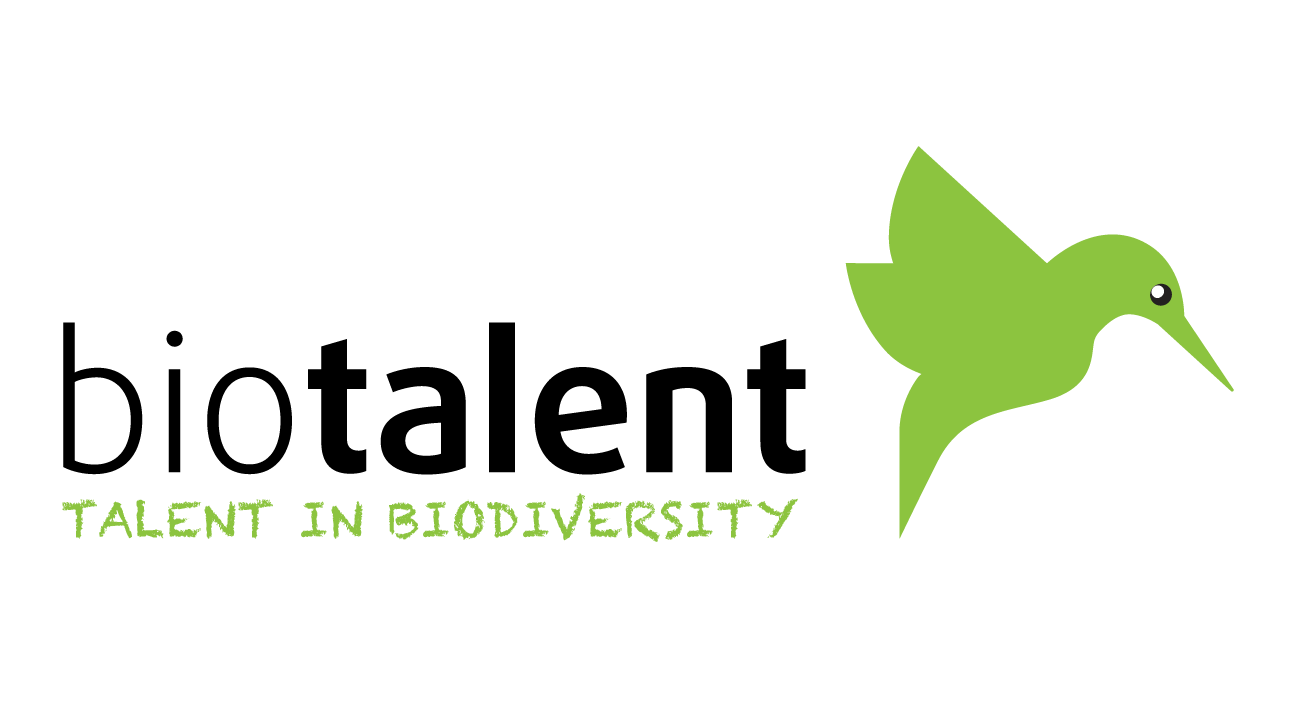
![]()
BIOTALENT EU Conference: Tackling biodiversity challenges through innovative e-learning
Date: 18 May 2017
Venue: Royal Belgian Institute of Natural Sciences, Brussels
BIOTALENT is a blended e-learning training programme to gain crucial skills and knowledge in biodiversity. Protecting life on earth in all its forms also involves introducing innovative ways to address pressing environmental issues of today. A strong investment in environmental education and a passion for science is therefore essential to this programme.
This one-day event will illustrate the uniqueness of the BIOTALENT project and programme in the way environmental education is brought to the course participant. The various expert speakers that are invited are all very passionate about innovation in education and the new ways in which scientific and environmental education can contribute to conserving biodiversity. The BIOTALENT project will firstly be presented with an overview of the activities and the very first results. Targeted audiences are also engaged for involvement in the implementation phase either as a learner, content provider, trainer or as a supporter of actions. Subsequently, a panel discussion, with education experts from across Europe, will touch upon a variety of topics ranging from the use of natural history collections as an educational resource to the competencies needed for the labour market. This will be moderated by biologist, science writer and journalist Dirk Draulans. The audience will receive the opportunity to discuss and have an input.
We welcome scientific and environmental educators and organisations from far and wide to participate in this conference. Whether you are biology teacher, a trainee teacher from secondary education, or an educator from a science museum, a botanical garden, a science centre or a nature organization, feel free to register by following the link below. Also other professionals can participate, such as biologists, park rangers, conservation managers in the field of biodiversity.
Click here to register for the event on May 18th, 2017. Closed.
Participation is free.
CONFERENCE PROGRAMME
| 9:00 | Registration | |
| 9:30 | Welcome | Camille PISANI, Royal Belgian Institute of Natural Sciences, Brussels, General Director |
| 9:35 | Introduction: Biodiversity in a Changing Climate | Isabella VAN DE VELDE, Royal Belgian Institute of Natural Sciences, Project Coordinator |
| 9:45 |
Presenting the BIOTALENT project |
|
| 10:15 | Inquiry Based Science Education | Franz BOGNER, University of Bayreuth |
| 10:25 | Best Practices in e-learning | Gregory KENICER, Royal Botanic Garden Edinburgh |
| 10:35 | Innovation in Science Education | Evita TASIOPOULOU, Science Education Department of European Schoolnet |
| 10:45 | Coffee break | |
| 11:00 | Panel discussion | Moderated by Dirk DRAULANS, biologist, writer and journalist |
| Natural History Collections as a Resource for Innovative Education | Isabella VAN DE VELDE, Royal Belgian Institute of Natural Sciences, Brussels | |
| Knowledge and Skills Needed for the Labour Market | Willy SLEURS, Flemish Ministry of Education, Qualifications and Curriculum | |
| How to Engage Students More Deeply in Science? | Sofoklis SOTIRIOU, Ellinogermaniki Agogi Center for Science Teachers Training, Athens | |
| How Can Nature Organisations Contribute to Innovative Education? | Melina KYAMETIS, Natuurpunt CVN, Centre for Nature Education, Flanders | |
| New Tools, Methodologies, Approaches for Innovative Education | Tamás VÁSÁRHELYI, Hungarian Society for Environmental Education | |
| 12:30 | Closure of the conference | |
| 12:45 | Lunch, featuring some creepy-crawly delights! | |
| 14:00 | Guided visit to the 'POISON' exhibition in the Museum of Natural Sciences (RBINS) | |
